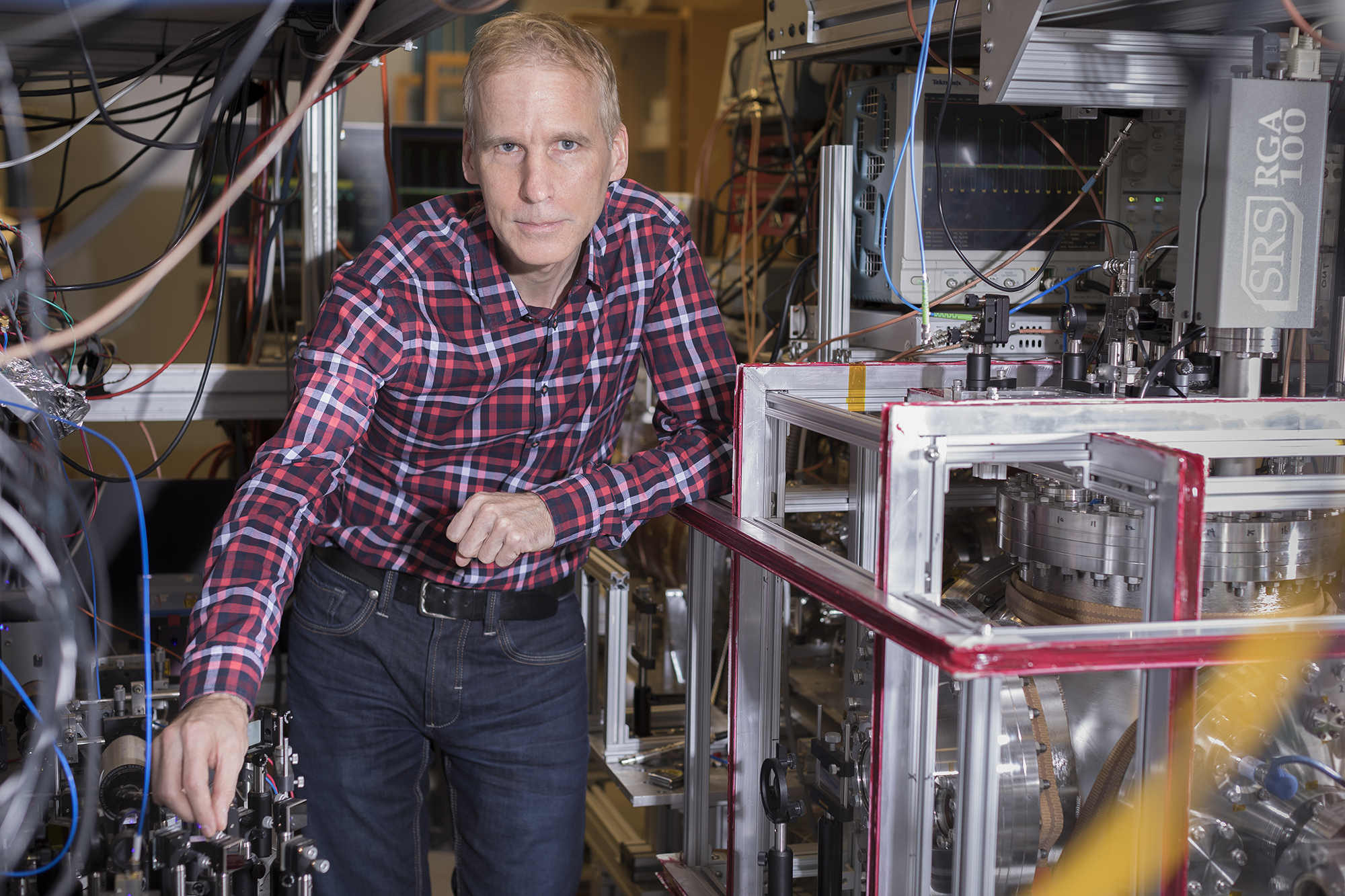York’s distinguished research professor, Eric Hessels, has been awarded the prestigious 2020 Medal for Lifetime Achievement in Physics by the Canadian Association of Physicists (CAP). Dr. Hessels is being recognized for his leadership in the area of high-precision atomic measurements, which includes several never-before-seen breakthroughs.
“I feel very honoured,” says Dr. Hessels. “I would like to acknowledge all of the intelligence and hard work contributed by my students and postdoctoral researchers.”
The CAP was founded in 1945 and represents over a thousand physicists and physics students working both in Canada and internationally. In the 64 years since it began awarding the lifetime achievement medal, it has never gone to a Department of Physics and Astronomy professor — until now.
The award honours researchers’ service to physics over time, or for outstanding achievement(s) in the field. Dr. Hessels’ 2020 recognition fulfills both of these accomplishments as a leader in the field of precision measurement for over 30 years, and certain major discoveries.
“Most recently, we have measured the size of the proton by making a precision measurement using the hydrogen atom, which consists of a proton and an electron,” he says. “This measurement helps to resolve a decade-long conflict between proton-size measurements performed with electrons and those performed with muons, which are the heavier cousin of the electron.”
The study found the size of the proton to be an unfathomably tiny 0.833 femtometres, just under one trillionth of a millimetre. This measurement was the most precise ever. The confirmation it gave of the proton’s radius resolved a major long-standing controversy in physics known as the Proton Radius Puzzle.
“We are trying to see if the electron’s north pole is more positively charged than its south pole. If it is, one of the fundamental symmetries of nature would be broken.”
“Professor Hessels specializes in precision measurement to test fundamental theories of physics. His work is important in advancing our understanding of nature and how it works,” stated Patrick Hall, chair of York’s Department of Physics and Astronomy. “His research group provides invaluable opportunities for undergraduate, graduate students, graduate and undergraduate students, and postdoctoral fellows at York to be involved in cutting-edge science.”
During his career, Dr. Hessels has performed many other ultra-high-precision measurements of atoms.
“We are incredibly proud that Dr. Hessels will receive this prestigious honour from the Canadian Association of Physicists. His contributions to the discipline of physics have far-reaching impact in terms of understanding the universe we inhabit,” says Rui Wang, dean of the Faculty of Science.
Currently, Dr. Hessels is continuing cutting-edge research, probing more fundamental questions of physics. His current effort involves measuring the shape of the electron.
“We are trying to see if the electron’s north pole is more positively charged than its south pole. If it is, one of the fundamental symmetries of nature would be broken,” he says.
“The fact that the universe is made up almost entirely of matter (electrons, protons, etc.) and not antimatter (anti-electrons, anti-protons, etc.) makes us believe that this symmetry must, in fact, be broken. Our measurement will contribute to understanding the fundamental laws of physics that allow this symmetry breaking.”


